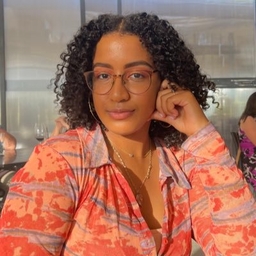
Anissa Durham
Health Data Reporter at Word In Black
Mental health freelancer @poynter ✨Health data reporter @wordinblack ✍🏾 @NatUniv 🌷
Articles
-
2 weeks ago |
thenarrativematters.com | Anissa Durham
In the last two years, drug overdose deaths have declined by about 10% nationally. But Black Americans are still dying at alarming rates. We call them addicts. Users. Drug seekers — and we see them as less than human. We often assume unhoused people living in tents under freeway overpasses are substance users. But it’s our neighbors, our loved ones, and our family. The reality is that most Americans know someone who struggles with substance use. And for Black America, there’s a drug overdose epidemic.
-
3 weeks ago |
wordinblack.com | Anissa Durham
We call them addicts. Users. Drug seekers — and we see them as less than human.  We often assume unhoused people living in tents under freeway overpasses are substance users. But it’s our neighbors, our loved ones, and our family. The reality is that most Americans know someone who struggles with substance use. And for Black America, there’s a drug overdose epidemic. “We have historically criminalized substance use in Black and Brown communities — the view has been very harsh.
-
1 month ago |
dallasweekly.com | Anissa Durham
Overview: Black families are urged to have open conversations with their children about sex to address the high rates of sexually transmitted infections and HIV diagnoses among Black youth. Parents can model consent, boundaries, and communication with their children, and start conversations early, such as by explaining diaper changes or private body parts.
-
1 month ago |
wordinblack.com | Anissa Durham
When was the last time you spoke to your child about sex? For many parents and guardians, talking about the birds and the bees can be difficult, uncomfortable, and cringy. But Black families, talking about sex carries an added urgency: Federal data shows Black youth account for a third of all U.S. STI cases, while Black women make up half of new HIV diagnoses.
-
1 month ago |
thenarrativematters.com | Anissa Durham
According to a new study, Black women are evicted at shocking rates. Often illegally. And the toll on their health is no joke. Legal or illegal, Black women are still the most likely to be evicted. And a new report found that Black women of reproductive age who have experienced eviction as adults or children reported poorer health outcomes. We wanted to know why.
Try JournoFinder For Free
Search and contact over 1M+ journalist profiles, browse 100M+ articles, and unlock powerful PR tools.
Start Your 7-Day Free Trial →X (formerly Twitter)
- Followers
- 1K
- Tweets
- 2K
- DMs Open
- No

Hi 👋🏾 I’m Anissa, the health data reporter @WordInBlack. I’m looking to chat w/ Black Americans about their thoughts and opinions on the safety of organ donation/ transplantation. Send me a DM or email me at [email protected] Please repost & share ✨#journorequest

RT @zellieimani: White privilege doesn’t mean your life is easy. It means your skin isn’t the reason it’s harder.

RT @SaharahRain: Having an empty laundry basket is the best 5 seconds of my life.